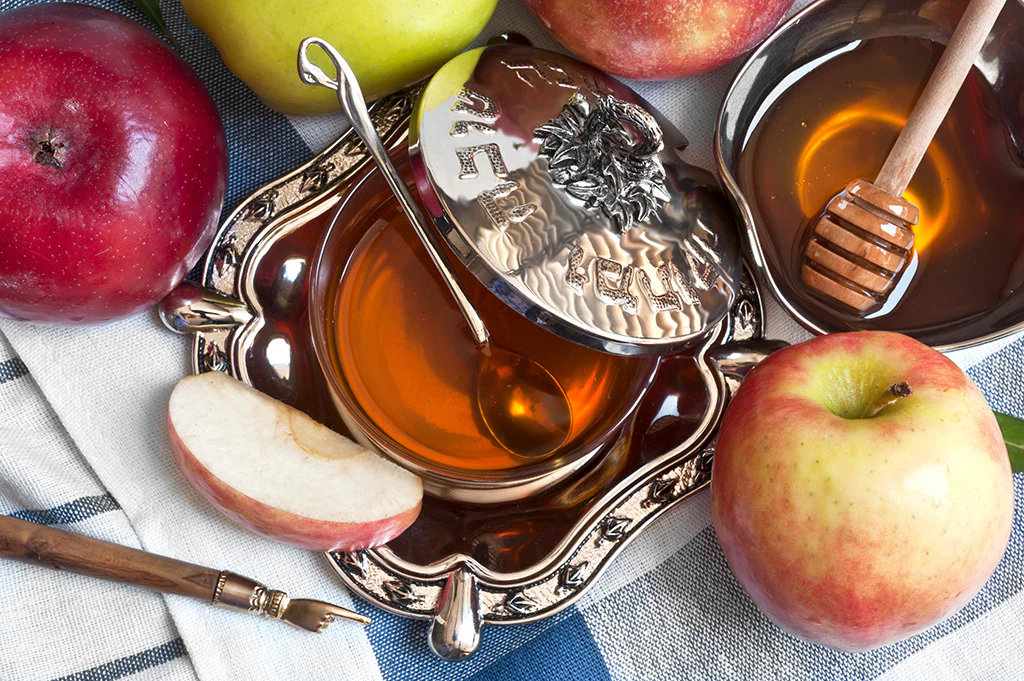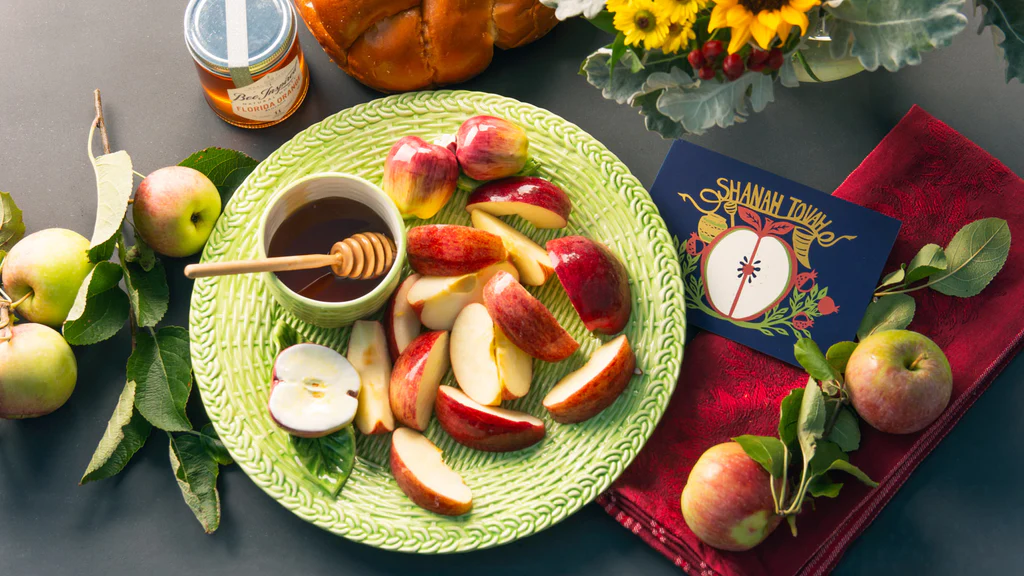Rosh Hashanah, the Jewish New Year, begins at sunset and carries profound significance as a time of reflection and introspection. Rabbi Daniel Rowe of Aish Jerusalem explains that while it marks the start of the Jewish year, it is also perceived as a day of judgment.
This duality embodies both seriousness and celebration, inviting individuals to contemplate their past actions and envision their future selves. Rowe emphasizes that the holiday is not merely about judgment but about the opportunity for renewal and personal growth, encouraging a deep examination of one’s values and intentions as one approaches the new year.
Central to the Rosh Hashanah experience is the food consumed during the holiday, which serves as a means of enhancing its spiritual significance. According to Rowe, the foods eaten during this time are imbued with deeper meanings and reflections on one’s aspirations.

The act of eating becomes a conscious ritual, where individuals consider how their choices can positively impact themselves and the world around them. He points out that this period is not only about nourishing the body but also about fostering a mindset that seeks to be a blessing to others, as well as a reflection of divine goodness.
Among the various food customs associated with Rosh Hashanah, one of the most popular traditions is dipping an apple in honey. Rowe highlights that the apple symbolizes the blessings of the world, representing nourishment and the desire for a sweet year ahead.
This simple act reflects a larger theme of appreciation for the good in life and a reminder to cultivate positivity within oneself. Through this practice, individuals are encouraged to recognize the significance of every food item consumed and how it contributes to their overall well-being and spiritual state.
In contrast to other Jewish holidays like Passover, which has specific kosher dietary rules, Rosh Hashanah follows the general kosher laws. Rabbi Rowe explains that keeping kosher involves adhering to biblical commandments regarding the consumption of certain animals.
For example, kosher animals must have split hooves and chew their cud, traits that symbolize domestication and temperance, while animals that exhibit aggression or wastefulness are excluded. This dietary practice reinforces the connection between what individuals eat and the characteristics they embody, highlighting the importance of making conscious choices about the food they consume.
Rowe also discusses the importance of food preparation according to kosher laws, which stipulate the separation of meat and dairy products. This separation serves as a metaphor for the balance between life and death, further emphasizing the spiritual implications of dietary choices.
He notes that our physical composition reflects the foods we consume, prompting individuals to consider the kind of person they aspire to be. Ultimately, Rosh Hashanah serves as a profound opportunity for self-reflection and growth, inviting Jewish people to not only celebrate the new year but also to engage in thoughtful practices that align with their values and aspirations.
